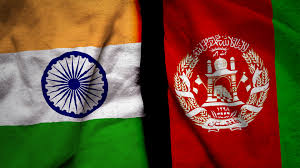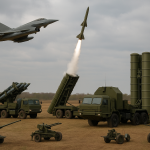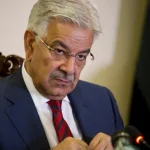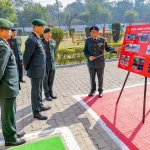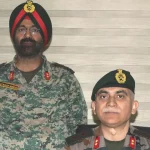In a major diplomatic rebuttal, both India and Afghanistan have categorically denied Pakistan’s allegations that an Indian missile attack was launched from or targeted Afghan territory. The denials come amidst rapidly intensifying military tensions in South Asia, following a wave of deadly exchanges between India and Pakistan.
Also Read: India Rejects Pakistan’s Missile Strike Allegation on Afghanistan as “Baseless and Inflammatory”
The Afghan Ministry of Defense, represented by spokesman Inayatullah Khawarizmi, firmly dismissed the Pakistani claims as “baseless and fabricated.” Speaking to Hurriyat Radio Pashto, Khawarizmi asserted that no missile activity occurred on Afghan soil, accusing Islamabad of deliberately spreading misinformation to deflect from its own regional activities.
Echoing Afghanistan’s stance, India’s Ministry of External Affairs also rejected the accusations, labeling them “false propaganda” aimed at misleading the international community. Indian officials indirectly referenced Pakistan’s past interference in Afghanistan, asserting that the Afghan people are fully aware of who has historically respected their sovereignty—and who has not.
These denials follow India’s confirmed military operation on May 7, 2025—Operation Sindoor—in which the Indian Air Force carried out coordinated precision strikes on four Pakistani airbases: Chaklala (Rawalpindi), Murid (Chakwal), Rafiqui (Shorkot), and one undisclosed site. The operation was reportedly in retaliation for a deadly terrorist attack in Kashmir that claimed 26 civilian lives, an act India attributes to Pakistan-based terror outfits.
In response, Pakistan claimed it shot down five Indian aircraft and issued warnings of severe retaliation. Furthermore, Pakistani military officials alleged that India had used Afghan territory as a launchpad for the missile attacks—an assertion now firmly denied by both Kabul and New Delhi.
Meanwhile, civilian casualties continue to rise on both sides of the Line of Control in Kashmir, as border hostilities intensify. The growing conflict has caught the attention of global powers, with the United States calling for immediate de-escalation. U.S. Secretary of State Marco Rubio reportedly spoke with Pakistani Deputy Prime Minister Ishaq Dar, offering Washington’s support to mediate talks and prevent further escalation.
Complicating matters further are the long-standing tensions between Afghanistan and Pakistan over border violations, cross-border militant activity, and Pakistan’s historical involvement with groups like the Tehrik-i-Taliban Pakistan. These factors add to the skepticism in Kabul regarding Pakistan’s narrative.
With both India and Afghanistan taking a unified stance against Islamabad’s allegations, regional observers suggest a shifting geopolitical alignment may be underway. As the international community watches closely, the need for diplomacy and restraint grows ever more urgent amid fears of a wider military confrontation in South Asia.

